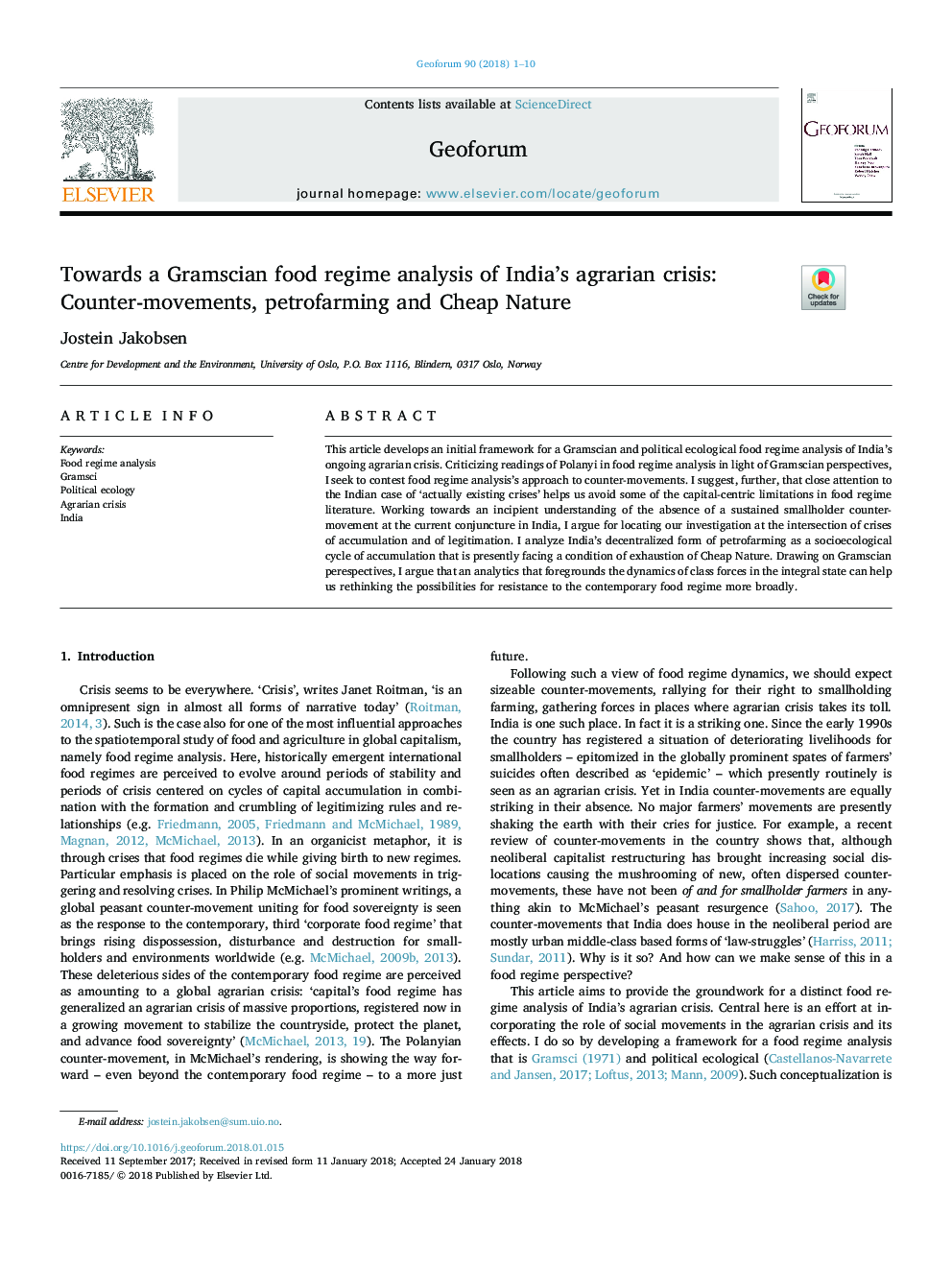| Article ID | Journal | Published Year | Pages | File Type |
|---|---|---|---|---|
| 7353674 | Geoforum | 2018 | 10 Pages |
Abstract
This article develops an initial framework for a Gramscian and political ecological food regime analysis of India's ongoing agrarian crisis. Criticizing readings of Polanyi in food regime analysis in light of Gramscian perspectives, I seek to contest food regime analysis's approach to counter-movements. I suggest, further, that close attention to the Indian case of 'actually existing crises' helps us avoid some of the capital-centric limitations in food regime literature. Working towards an incipient understanding of the absence of a sustained smallholder counter-movement at the current conjuncture in India, I argue for locating our investigation at the intersection of crises of accumulation and of legitimation. I analyze India's decentralized form of petrofarming as a socioecological cycle of accumulation that is presently facing a condition of exhaustion of Cheap Nature. Drawing on Gramscian perespectives, I argue that an analytics that foregrounds the dynamics of class forces in the integral state can help us rethinking the possibilities for resistance to the contemporary food regime more broadly.
Keywords
Related Topics
Social Sciences and Humanities
Economics, Econometrics and Finance
Economics and Econometrics
Authors
Jostein Jakobsen,
